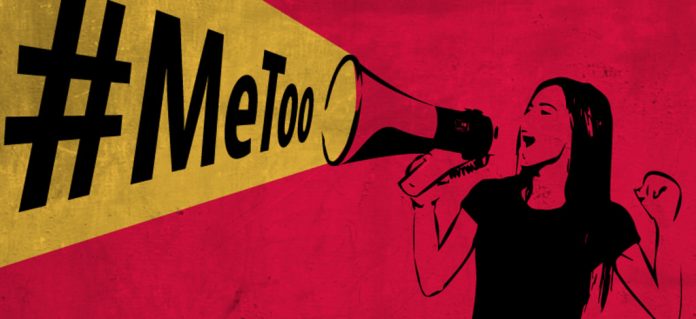Charles Stock
Over the course of the past year, the #MeToo movement has made global headlines and has led to the fall of a number of notable figures accused of sexual misconduct. The #MeToo movement was coined in 2006 with the aim of empowering survivors of sexual violence, particularly young women of color from low income backgrounds. It has since grown into an international movement that includes people from all walks of life.
Since its origin, the #MeToo movement has brought our attention to the all-too-prominent presence of sexual misconduct in America and gives a voice to the millions of victims across the world. The goal of the movement is to destigmatize what it means to be a survivor and to encourage people to discuss the reality that sexual misconduct is nearly omnipresent in our society today.
Only by bringing the topic to the forefront of conversations will significant societal change occur. According to the movement’s website, “17,700,000 women have reported a sexual assault since 1998,” which is approximately 242 individuals on a daily basis in the United States alone.
This number is merely skimming the surface of the multitude of instances of sexual misconduct. When accounting for the women who do not feel safe enough to come forward and speak, this number of sexual assaults is much higher. The #MeToo movement provides a platform for people to come forward and support each other in a world which otherwise has little means of doing so.
#MeToo amplifies the voices of victims and, in some instances, exposes guilty parties. Laws condemning sexual harassment have only done so much. It is time for action from a society as a whole. Now, more than ever, men and women must not sit idly by.
The magnitude at which we display our discontent with the consequences of those guilty of sexual violence must increase. The fact that accused parties include, but are not limited to: actors, producers, athletes, Supreme Court Justices, and even the President must motivate us to bolster the #MeToo movement with the aim of one day making it obsolete.
Although the news naturally focuses on celebrities and other well-known individuals, it is crucial to be aware that the grand majority of sexual misconduct occurs in our everyday lives. In Isla Vista alone, there have been two known reported incidents between Sep. 25 and Oct. 3 this year, the first of which was UCSB campus affiliated.
According to campus policy, “UCSB does not tolerate sexual violence, sexual assault, sexual harassment, dating/domestic violence or stalking.” Due in part to the ominous presence of sexual misconduct in Isla Vista, UCSB offers services explicitly for survivors such as CARE (Campus Advocacy, Resources, and Education) and CAPS (Counseling and Psychological Services).
However, it is our duty as students, citizens, and friends to share any knowledge that we may have in order to prevent, stop, and/or bring to light any and all injustice. No one should suffer for another’s crimes. If something has happened to you, it does not mean it happened because of you. Here are some valuable safety tips and resources provided by the UCPD:
Safety Tips
- If you feel you are being followed, try to get the attention of people nearby; run/walk to a well-lit and/or more populated area, and call 911 to ask for help.
- If you are going out alone, make sure that someone knows where you are going, who you will be with, and when you expect to return.
- If you start to feel concerns about a person or a situation, trust your instincts and try to remove yourself as quickly as possible from the potential threat.
- If you think someone is at risk of assault or abuse, you should consider it an emergency and act to support that person. You can call the police or ask for help from other people, intervene directly if safe, or create a distraction to help remove the potential victim from the situation.
Resources
- The UCSB CARE office provides confidential support and advocacy to students who have experienced sexual assault, relationship abuse, and stalking. Call (805) 893-4613 any time (24/7) for confidential help. CARE website: wgse.sa.ucsb.edu/care.
- Information about UCSB’s policies and support resources for sexual violence can be found at: sexualviolence.ucsb.edu.
- The UCSB Police Department’s CSO Safety Escort Program is a free service provided to members of the UCSB community as a safe alternative to walking alone at night. Call (805) 893-2000 to request a CSO escort.











